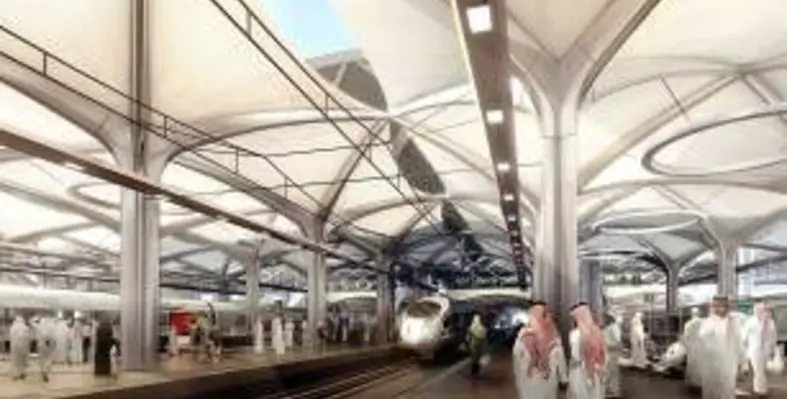Saudi Arabia plans to turn the kingdom into a global logistics hub with an expanded network of commercial and industrial freight services
Speaking at a recent forum, Saudi rail chiefs said that the Saudi Railway Company (SAR) already moved nine million tons of freight last year. Compared with other means of transport, trains have a lower carbon footprint, cost less, are more reliable and have lower manpower requirements, they added.
?The railway sector is witnessing qualitative growth with an added focus on freight,? said Saudi transport minister Nabeel bin Mohammed Al Amoudi.
?Conditions have been put in place for rail freight to unleash its enormous potential and increase its attractiveness to customers.?
SAR also has ambitious plans for an expanded passenger network, its chief executive Bashar Khaled Almalik told Arab News at the forum. ?We are growing and growing,? he said.
?We have several projects under construction including a connection to Jubail Industrial City and another to Ras Al-Khair, where we have gone up to the northern borders.
?We are also looking to build the connection between the two networks here in Riyadh and move on, depending on the demands and the needs of our customers. We have expansion plans and some master plans to be executed within next few years. We are looking at the Saudi Land Bridge Project, which will connect Riyadh with Jeddah.?
Preparations are also underway to begin operations of the high-speed Haramain Express train line by the end of September.
The 450km line, linking the holy cities of Makkah and Madinah via Jeddah and King Abdullah Economic City of Rabigh, was originally due to open in 2012 but has been hit by delays and cost increases.
Lat week, Al Amoudi inspected the projects and stressed its operational readiness, the official Saudi Press Agency (SPA) reported.
Al Amoudi and other officials checked the equipment and preparation in all the stations to ensure the implementation of the ?highest standards of quality in the efficiency of operation, maintenance and control?, the report said.
They first inspected the Al-Haramain Highway Station (Sulaymaniyah) in Jeddah ? one of the main stations. Spread over an area of about 461,000 sq m, the station features a VIP lounge, a mosque with a capacity for 600 worshipers, a civil defence centre, a helicopter landing pad and 6,000 parking lots divided into short and long-term parking spaces.
The minister then took the train in the direction of Al-Rusayfah station in Makkah. The journey took about 21 minutes, at a speed of up to 300km/h. He also inspected the station, which covers more than 503,000 sq m of space. The main terminal building includes a lounge for arrivals and departures, VIP lounges, a mosque for 600 worshipers, a civil defence centre and a helipad, and 5,000 parking spaces.
The Haramain rail project will be operated by 35 passenger cars with a capacity of 417 passengers on two-way trips between Makkah and Madinah.
The line has five stations ? two terminus stations in Makkah and Madinah, and two central stations in Jeddah and Rabigh, and the fifth station at King Abdulaziz International Airport built by the General Authority of Civil Aviation.
The train will travel at speeds of 300km/h and reduce journey times between Makkah and Jeddah to 21 minutes, Jeddah to King Abdulaziz Airport to 14 minutes, King Abdulaziz Airport to Rabigh to 36 minutes and Rabigh to Madinah to 61 minutes.
Travel between Makkah and Madinah will take less than two and a half hours.
Later stages could see the line linked to Jeddah Islamic Port and Makkah?s metro.
The train line is eventually intended to handle 60mn passengers per year when it reaches full capacity from Q1 2019.







